Is this a good time to visit Egypt? The answer is yes, according to travel expert Giulia Cimarosti.
After publishing the article “Is it safe to visit Egypt and Jordan?” in April, I’ve been contacted by several readers with concerns about travel safety. I reached out to Giulia, who agreed to answer questions from Downtown Traveler readers and to shed light on the current situation in Egypt.
Giulia Cimarosti, 28, is a full-time traveler, photographer and blogger originally from Genova, Italy. She first visited Egypt in 2004 on a family vacation and has returned seven times. A passionate advocate for Egyptian travel, Giulia founded the Travel Reportage blog in 2010 to chronicle her adventures.
Giulia experienced the Egyptian Revolution firsthand during a nine-month stay in Cairo that ended in May 2011. During the January 25th revolution, she posted live updates from Cairo; she has covered many facets of the revolution, from travel safety to street art. Giulia keeps her pulse on the latest developments in Egypt and most recently visited from October to November 2011.
Read on for Giulia’s answers to reader questions and her thoughts on Egyptian tourism.
Egyptian Culture & Attractions
Readers of your blog, Travel Reportage, know how passionate you are about Egypt. What first interested you in the country?
At the beginning I was not interested at all! The first time I visited it was just because my mother took me there. As soon as I arrived, there must have been some sort of magic because I instantly fell in love with the place. I would say it’s the atmosphere. I started being interested in the Ancient Egyptian mythology and then in the music, culture, language… little by little I started exploring all the aspects of this country.
What do you like best about Egyptian culture?
I like the way people are friendly, helpful and genuinely interested in spending quality time together. They are very keen on hanging out in big groups, and meeting new people is easy and fun. Another thing I like is that Egyptians are usually proud of their country and humble at the same time. Almost all the people I met dream of traveling abroad, but would never move to another country for good: they are just too attached to Egypt and I can understand that!
What are your 3 favorite attractions in Egypt, that no tourist should miss?
My favorite pyramids are the Dahshur ones, definitely less famous and touristic than the Giza ones, but still beautiful and less crowded. My favorite city is Cairo, and I suggest everyone to visit Garbage City and the Christian cave churches in it. They are simply stunning, I never saw anything like that before! My favorite desert getaway is Wadi el Hitan, the “valley of the whales”, where you can see fossils of mangroves and whales, ride amazing golden sand dunes, stay in almost unknown camps… all this at just about 3 hours away from Cairo!
Female Travelers
Have you faced any challenges as a Western woman, living and traveling in Egypt? If so, how did you deal with them?
I never really had any problem to be honest. The only annoying thing if I have to name one is the verbal harassment in the streets, but this happens to Egyptian women as well. The only way to deal with it is to not pay attention and move on. Sometimes it becomes very irritating but reacting doesn’t really work. Hopefully this habit will come to an end at some point!
“I’m planning to go in December. I want to know the proper attire for female tourists.” – @NetaBobbie via Twitter
There is nothing forbidden in Egypt. You don’t have to be covered or anything like that. Just remember that the more you show, the more you’ll draw attention, so try to cover at least your shoulders and cleavage, and don’t wear shorts or mini skirts. It’s just a matter of feeling comfortable and fitting in. I recommend sneakers or closed shoes, but just in order to be comfortable and to avoid getting too dirty. Sometimes the streets can be in very poor condition, both maintenance and cleanliness wise.
In one of your YouTube videos you wear a niqab and walk around downtown Cairo. What inspired you to do this? And what did you learn from this experience?
I just wanted to try and see what it felt like to wear a niqab. In Western countries we have a lot to say about it, but who has actually tried it? I was planning for months to do this experiment, but unfortunately I was only able to do it just shortly after the revolution. That’s why I was feeling a bit nervous – the police were very suspicious of foreigners and I didn’t want them to find out I was “hiding” behind a niqab… I might pass for a spy!
>> Video: Giulia wearing a niqab in Cairo. (Source: RTWgiulia/YouTube.com)
I would do it again now that I did it once. It’s a great way to pass unnoticed in the streets, while as a foreigner this never happens. I noticed that only the tourists were looking at me! After a while it was very hard to stand the heat, because you’re supposed to wear regular clothes underneath. You have many layers of fabric, and breathing becomes hard.
I understand that it’s a matter of getting used to it, and women who usually wear it would never do without. We must remember that it’s not always something they’re forced to do, as we are used to thinking. Some women actually choose to wear a niqab. Have you ever thought of how hard the opposite process can be instead—to stop wearing a niqab?
The Egyptian Revolution
You were in Cairo during the Egyptian revolution. What was it like to be in the city during that historic time?
At the beginning nobody really knew what was going to happen, and I wasn’t worried at all. I avoided taking part in the protests, but I witnessed most of them. I never felt anything like that before in my life… it was more excitement than fear, because you could feel that something big was going to happen. I remember walking in the empty streets of Cairo on January 28th (the Friday of Rage) just before everything started and feeling it in the air.
Watching the news will never convey the same feeling. Plus you have to consider that I had close friends taking part in the protests, as well as my boyfriend, so fear became really tangible. On the same day, they cut the telephone lines and internet connection, and that was the worst thing as I couldn’t speak to anyone for 24 hours, therefore I couldn’t know if everyone was ok or… well I expected the worst, when I saw the casualty count rising. Luckily, none of them died, but some got seriously injured.

Giulia poses with young Egyptians painting revolutionary street art in Cairo. The murals celebrate religious tolerance. (Photo: TravelReportage.com)
Another thing that I felt was rage. I was mad at Vodafone for agreeing with the government and cutting the internet and the telephone lines. I was mad at the government for not responding for days, and for doing anything they could to suppress the protest. I was mad at the police when I saw them shooting at (or running over) harmless people, or when they threw tear gas in the hall of the hotel where I was staying in order to force the people to run out and become their victims.
I was also amazed by the unity among the people regardless their religion, belief or social class. Everyone was fighting for the same thing: getting rid of Mubarak. I don’t know if I will ever be able to express what it feels like to experience something like this!
Were you concerned for your safety during and after the revolution? Did you take any special precautions as a woman or foreigner?
I was never really concerned but I believe it was because of the adrenaline… when I left the country I realized that I was in a state of shock. Anyway, with the wisdom of hindsight, I can say that I was never really in danger, even if hearing the sound of gunshots and fighter planes was definitely not relaxing. I never did anything to put myself in a dangerous situation anyway, so I was safe all the time.
I left the country on February 2nd, because no one knew what was going to happen, and the embassies were starting to repatriate foreigners. I went back to Egypt just two weeks later. Even a revolution couldn’t keep me away for too long…
Travel Safety
Since I wrote about my trip to Egypt this spring, several readers have contacted me to ask if it is safe to visit Egypt right now. What do you think– would you recommend that tourists go to Egypt now?
I would definitely recommend that anyone visit Egypt. Everyone must know that whatever happens in Tahrir Square, the rest of Cairo and– most of all– the rest of Egypt is perfectly safe. This doesn’t mean that the protests are not important, but tourism-wise there are no complications at all. If there’s a demonstration on the same day you’re in Cairo and you’re concerned about your safety, just move a couple of minutes away from Tahrir Square and you’ll be perfectly fine.
If travelers have safety concerns about visiting Egypt, are there certain websites, Twitter feeds or Facebook pages you’d recommend they consult for up-to-date information?
I always search “Tahrir” on Twitter to get the latest news. That’s always the best tool to know to find out exactly what’s going on, together with Facebook.
Finding Deals
“What can we expect with regards to visiting the major sites (ruins and museums)? Are they operating normal hours? Are there almost no tourists at those sites anymore? [And] is it easier to find bargains with the turndown in visitors?” – Matt Stabile, TheExpeditioner.com
Nothing has changed regarding visiting ruins, museums etc. The ticket fares are probably still the same (they’ve always been cheap anyway!) but I saw great deals on organized trips with tour operators. The touristic sites operate normal hours and are less crowded now… I would definitely take advantage of that!
Food and Drink
“I’ve heard that drinking tea is customary in Egypt. Could you recommend some great places to relax and take in the sights over a cup of Koshary, or Saiidi?” – Maria Russo, TheCultureist.com
For tea, I would recommend the Harawy Cafe in the Islamic area of Cairo, just behind Al Azhar mosque and next to the music school where you can listen to typical Middle Eastern instruments.
“Where’s a great place for a beer in Giza? Going at the end of the month.” – @BAIRDSTRAVEL on Twitter
It depends – if you’re looking for a cheap place, there is a “Stella Bar” in Doqqi, where they serve cheap Stella (Egyptian) beer and the bar is definitely… picturesque! If you’re looking for a fancy place then I would go for Zamalek and all its sleek clubs – La Bodega, Aubergine, Amici… there you can find international beers/spirits too but the prices will be definitely higher.
“What are some dos and don’ts to lessen the chances of traveler’s diarrhea while in Egypt?” – Elissa Morganti Banas (via Downtown Traveler Facebook page)
I might not be the right person to ask, because I never had such a problem! Or maybe this makes me the number one expert? I always avoided drinking tap water for at least the first couple of days, but never paid too much attention to raw vegetables or ice in drinks. I think nowadays the hygienic conditions are better than a couple of years ago. Of course you have to avoid street food when it looks obviously dirty, but apart from that all I can say is enjoy your food! Actually, I drank tap water after a while but I avoided it in poorer areas where pipes could be very old, dirty and in bad condition. Anyway I wouldn’t recommend drinking it – you will find bottled water anywhere, so you don’t need to risk it.
Keeping an Open Mind
If you could give one final piece of advice to travelers considering a visit to Egypt, what would it be?
Usually if it’s the first visit to Egypt I recommend starting with the most well-known historical landmarks such as the Valley of the Kings, Aswan, Abu Simbel, the Pyramids etc. These are things that everyone should see, that make you understand a lot about the background of the country and will put you in the right atmosphere!
It’s so frustrating when someone who’s been only to places such as Hurgarda or Sharm el Sheikh says “I’ve been to Egypt and I don’t like the culture!” What? What culture are you talking about? That’s not Egypt… that’s probably the worst place to understand the local culture.
Other than that, the general advice I always give is to be open-minded and not to stress about lines and traffic. The Egyptian way of life is slow, and you can’t do anything but relax and wait. You’ll be rewarded by the great Egyptian friendliness and in most cases by great service.
What do you want to know about Egypt?
Leave a question in the comment field below or contact Giulia Cimarosti on Twitter (@giuliaccia) or on the Travel Reportage Facebook page.
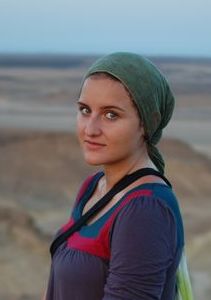
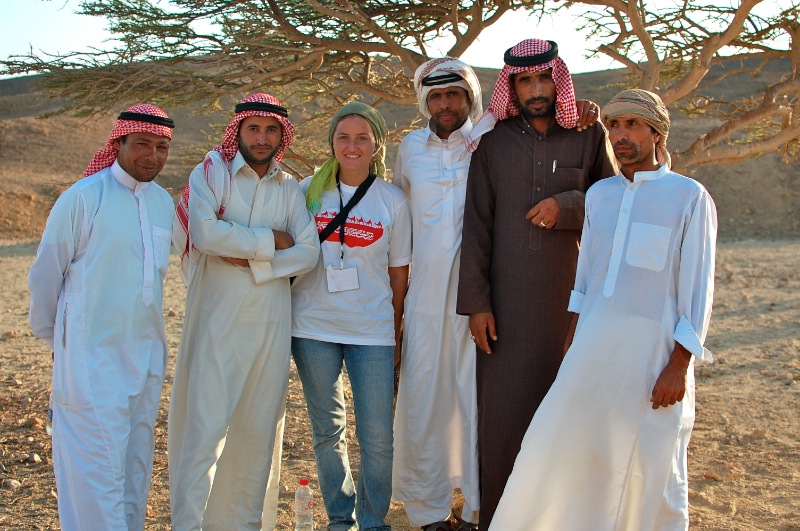


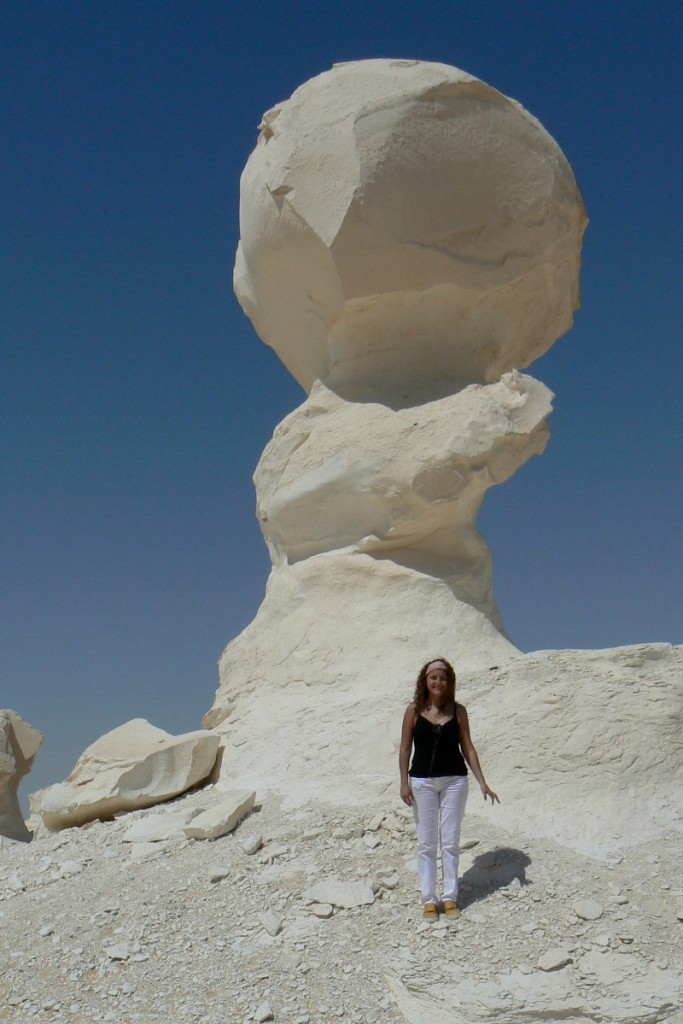
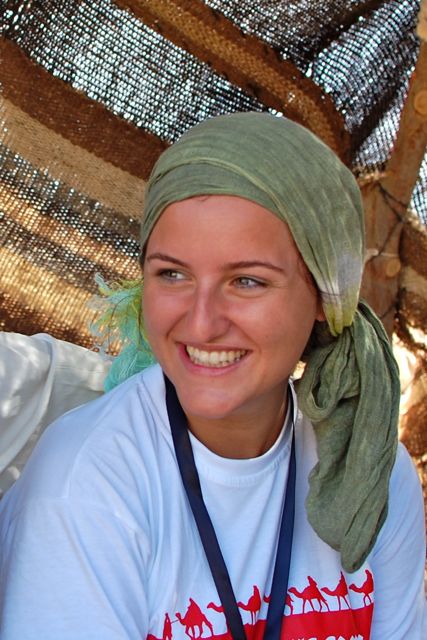
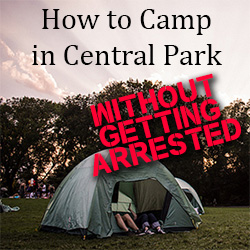













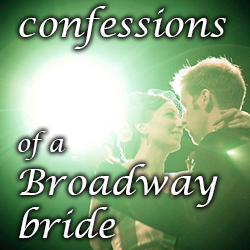


Great interview and write up! We were in Cairo for a week in late December at the same time as the 2nd wave of demonstrations were happening on Tahrir Square. Although the nightly news was horrible and made it seem like the entire city/country was in chaos, the violence was really restricted to that one small square. We had no problems criss-crossing the city and visiting sights around Cairo and in Alexandria.
People were outrageously friendly and welcoming, telling us not to worry about safety. And, with tourism numbers down 85% in December it meant that we had the pyramids, museums and other sites to ourselves. We felt safe the whole time.
WOW! What great tips from Giulia.. hope to be as brave and well travelled as her one day! It takes guts to be so deeply integrated into any society you visit,and for an extended period of time as well.. Great stuff, and great interview Les;)
Thanks Ciki. I’m fascinated by Giulia’s story. She clearly loves Egyptian culture and it’s so interesting hearing her take on the revolution.
Great use of networking and finding the answers from an expert about if it is really safe to travel to Egypt.
Really great, thoughtful questions and answers. Intriguing to hear a first hand assessment from someone who has lived in Egypt.
This is a fantastic article – it really put things in to perspective. Travel is already such a scary thing for many people – it is good that you are helping to dispell some of those fears
I really enjoyed reading this – on the news we only see the protests and the media always make things look worse than they are, like the whole country is in conflict. The niqab experiment was also really interesting – it would be especially insightful to see how tourists looked at you differently.
I feel so honored! Thanks for involving me in this project.
It’s always a pleasure for me to share my knowledge about Egypt, so I was very happy to answer these questions, and any further question if someone wants to ask!
The post looks great, thank you so much 🙂
SO interesting! Chile hasn’t had nearly the level of protests as Egypt did (here the issues were education reform and the environment), but I totally know what Giulia means when she talks about the energy you can feel on the streets. I’d love to see Egypt, and it’s good to hear it’s safe for tourists again.
I’m so proud to be an egyption guy, and i’d like to say to you from all my heart and honestly I’d love to see you all here in Egypt,and it’s safe for tourists to visit one of the most safety place on the earth ..
Mohamed, thank you for the comment on our Q+A with Giulia!
A nice article. I like the pointing on ‘keep your mind open’. Lots of foreigner travelers come to Egypt with prejudices in their heads. Sure, Egypt is poor country compare to the West but the culture is amazing. Beaches are fine if you look for relax or sport. Looking to know the culture? Leave the comfort of luxurious hotels and take a tour with a professional. You will stop seeing the poverty and almost everywhere garbage. You will see lots of this great nation.
We just left Cairo yesterday and EVERYONE told us not to visit Egypt right now. We didn’t even realize until we arrived that the 25th was the 1 year anniversary of the start of the major uprising. We saw some protestors and even had a rally go down in front of our hotel as we were staying 10 mins from Tahrir Square. We had no issues and never felt unsafe at any time – everything we witnessed was quite peaceful. They expected things to heat up this week as people were rallying as part of a “week of mourning” but again, nothing worthy of canceling our trip over. Considering we were originally booking the Costa ship that just sank for last week’s sailing, I think Egypt was a far safer choice!
Thanks for sharing your experience as a recent visitor to Egypt. It’s interesting that the cruise ship you were considering in Europe ended up being the unsafe choice! It’s really valuable to hear from travelers like you who have been to Egypt recently 🙂
I am sooo craving Koshary right now.
I forgot today is National Police Day and the anniversary of the beginning of the revolution. This time last year we were in Dahab watching events unfold in Cairo. We stayed six weeks and not once did we feel unsafe. Egypt is a big country.
Hopefully Giulia’s answers and the experiences of some of the commenters here encourage more people to visit this fascinating country.
Thanks for sharing your experience in Egypt!
went to sharm in november going back in 2 weeks loved it everyone so friendly no sign of animosity .
One of the few countries I would love visiting in the future. This post is very useful and one that keep tabs on where to visit the less touristy pyramids. I wished I can visit Egypt and stay longer like you do.
Hello,
Thank you for the informative Q&A.
My mom is traveling this month, March
to Egypt with her Church. Do you still feel it is safe and a good time to visit. They will be touring all the historical places.
Thank you. Clara Kiriwn
Hi Clara- thanks for your comment. For the latest developments, I’d recommend searching on Twitter under #egypt, #come2egypt and #jan25. Also make sure to visit the US state department website for any new alerts, and check out the blogs of travelers who have been there recently, like http://www.aaronswwadventures.com/2012/01/photo-essay-scenes-from-tahrir-square/.
hi all my name is ali
first i just want to give a big thanks to Giulia who trying to view egypt for people around the world from this awesome site, and im one of the egyption people who live in egypt and its awesome here in egypt and u can be in several places like cairo, sharm el shaik, hurgada, marsa alam, siwa, alex,alot of places u can be and ITS SAFE lol come on guys and u will found milions egyption guys just want to help u to get an out standing vacation in egypt hmm.. i think thats it lol thxx again
Hi Ali, thanks for your comment! Egypt is beautiful and there are so many attractions to see.
Thanks for your lovely comments a bout egypt
and i`m happy u enjoyed ur trip here
and wish to be friends with u
We got a little infuriated due to the elaborate scam pulled on us at Giza plateau. We got in a taxi when exiting the train station at Giza and was about to pull out when another passenger jumped in the front seat, said something in Egyptian to the driver and off we went, he then turned and told us he was a teacher and his name was Omar Sharif (good start), he was supposedly on his way to a wedding and could we drop him off on route, we agreed. Once he knew our destination he decided to inform us that there were two ways in, the tourist way and the Egyptian way, We were adamant we would go the tourist way even though his way sounded hassle free and cheap. Eventually we got to his drop off which just happened to be his mate’s stables where we told by the taxi driver this was the entrance and left us down a dirt track listening to a very long and pressurising sales pitch which included telling us it would cost $100 each to go the tourist route and his camels were the cheapest alternative at $50. We could see the pyramids in the background so we decided we had got our bearings and walked 30 minutes to the entrance. It eventually cost us $9 to get in the tourist route. It did put a slight dampener on the whole experience, and of course the scams continued around the pyramids too, but that’s another story.
Sounds like scams that happen at a lot of tourist destinations– like tuk-tuk drivers in Thailand who take tourists to jewelry shops owned by their colleagues and won’t let them leave until they buy something. It’s a shame how some unscrupulous people take advantage of travelers– glad you got out without paying anything.
Hello, I had planned a trip to Egypt on my own but family members did not want me to go. It’s great to hear positive things here from not just you but others as well. However I still worry. Would it be better traveling with a group? I am 62 and female; I want to go to Mt. Sinai in particular and then Cairo. In November I will go to Jordan and Israel with a group. I Thank you
Hi Pamela. I have not visited Egypt recently but Giulia is currently on a trip through the Middle East and may be able to address your concerns. She is live blogging on Twitter about the countries she is visiting. Check out her blog for details: http://blog.travelreportage.com/
Hello! I know this is a bit far off, but I want to travel to Egypt with my family to include my three children. Of course as with anyone my concern is the safety of my children. I have wanted to visit Egypt for many, many years and am planning a trip in the next year or so but want to make sure everything is taken care of first. Is it truly safe for children, and would you recommend a taking a tour company for added safety? Also in light of the recent kidnappings, is that something that honestly happens often or is it more of a fluke accident, like in the wrong place at the wrong time sort of thing? I appreciate your candid thoughts on this. Thanks all for the pics and info! This would be my absolute dream vacation!!
Thanks for the questions! The traveler interviewed in this Egypt Q+A, Giulia, is actually in Egypt right now. You can ask her questions via her site (Travel Reportage) or her Twitter or Facebook pages. It looks like she is having a great (safe) time: http://blog.travelreportage.com/metrip2012/
happy to read article like this about egypt, thanks alot for your interesting tips for all egypt visitors
i wish tourism return as it was before in egypt
I lived and worked in Egypt for years and have many friends there. I also know many unpleasant stories from woman who were unaccompanied by men. In the old days there was rarely any overt violence, but today all bets are off. I know many Egyptians in the USA and they don’t feel its safe to go to Egypt now even for themselves and their families. Egyptian friends in Egypt suggest now is not the time for me (or other obvious foreigners) to visit. Recently many women have been sexually assaulted by mobs. Banditry is growing in rural areas, Sinai, etc. Just this weekend 17 Egyptian soldiers were slaughtered in Sinai. I used to drive through Sinai all the time and didn’t think anything of it; everyone did. But now it has a lot more risk.
It is possible to go there now and be careful, sure, especially if you’re on a tour…. however I feel that Giulia is a bit too care free, almost irresponsible not to provide more serious caveats…. especially for women…. also, the abuse Egyptian women suffer daily is HORRENDOUS…
Thanks for sharing your perspective. Giulia has written about being a woman traveling in Egypt, which obviously has some challenges, but she has had a largely positive experience. In fact, she’s currently in Egypt and is providing updates on her blog, Facebook and Twitter: http://blog.travelreportage.com/metrip2012/
I am ashraf ramadan , i am a tour operator at viking travel company , i am looking for any one who would like to travel to egypt , Egypt is a land of many wonders and sights to behold, from the ancient pyramids of Giza to the amazing temples along the Nile. If you have dreamed of visiting this magical land… Well, Egypt is definitely a land that you deserve to experience.
contact me at
viking-travel@hotmail.com
Thank you for the informative Q&A.
I’ve travelled a lot and I’ve never met a warmer, more hospitable, down-to-earth and downright funny bunch of people.
this is a country where a smile goes a long way. That’s the way life should be.
whether it’s sly, bawdy, raucous, smart or just plain hilarious, everyone here appreciates a good joke. There’s very little that can’t be, or isn’t, laughed at.
Cairo. I read and dreamt about this crazy, beautiful, fascinating city when I was a child and, so far, it’s never disappointed me.
That it’s multi-layered and multi-faceted and never, ever dull – from the chaos of Cairo to the beauty of Siwa to the hippy charm of Dahab and the sophistication of Gouna. And that’s just a fraction of its charms.
That nearly everything is open nearly all of the time, which makes life so much easier. I can buy my groceries at midnight if I need to, which takes away a lot of the stress of city living.
The sense of community and the ease with which people relate to each other –
One final thing: if you’re outside the country and ever thought of visiting, A lot of things happened but, for most of us, the good definitely outweighed the bad. If anything, it’s made the majority of us, Egyptian and non-Egyptian, fall in love with Egypt even more…
What are you waiting for? Now seems to be as good as time as ever.
for further information about Egypt read my web site http://www.egyptraveluxe.comand too much information is to be found on my blogger http://egyptraveluxe.blogspot.com/